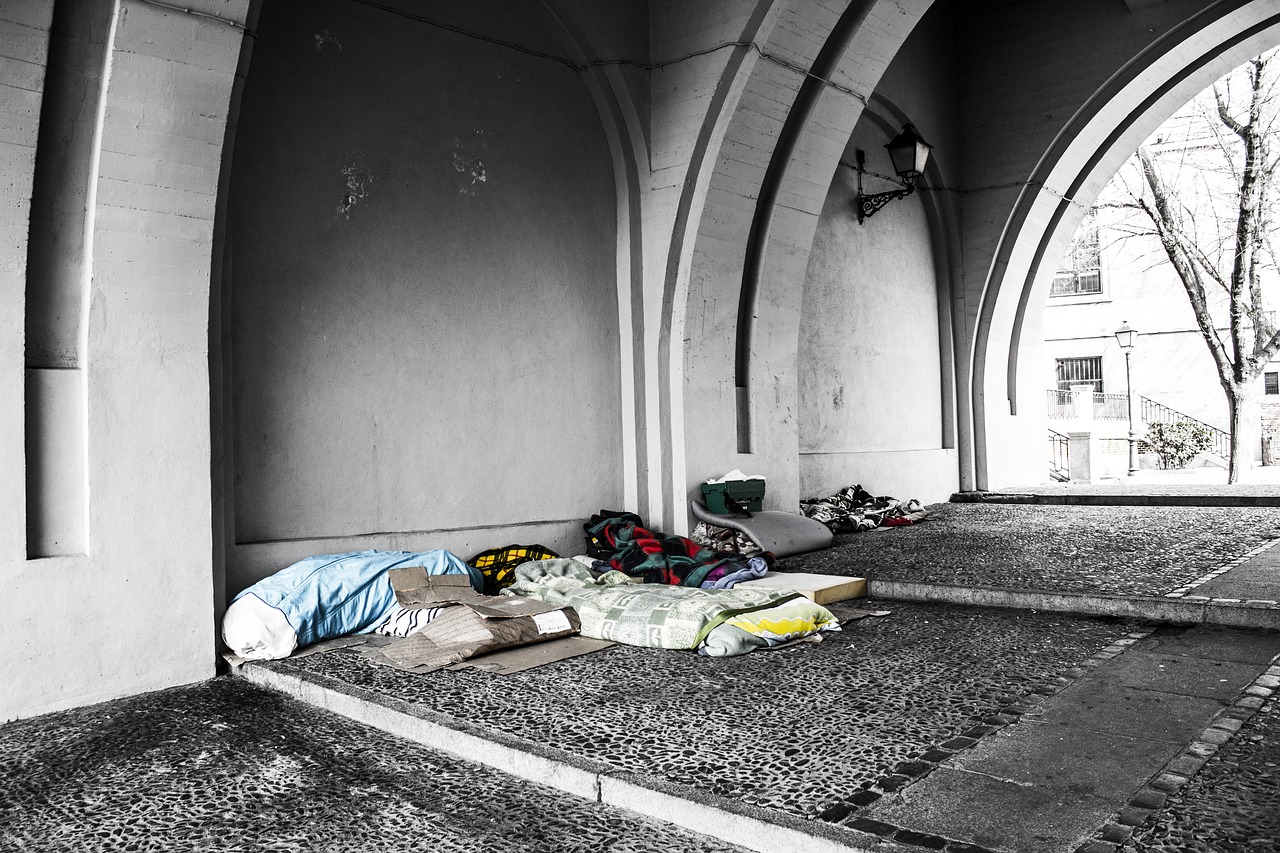Hurricanes: great beasts of wind and rain that beat down on unlucky cities in their path. As a community situated so close to the Gulf of Mexico, New College students, staff and faculty wondered if the raging winds of Dorian would cancel classes, break windows and rip trees from the soil. Some also rightly assumed the storm would drift off to the east coast. The experience of those without shelters, however, is often underlooked: no windows to board; no cars to evacuate.
Florida’s proximity to the ocean has ingrained a sense of hurricane culture. Preachers close the Sunday sermon with prayers for a merciful hurricane season. People bust out WD-40 for the rusty shutters and charge everything they own. Hurricane cakes from Publix pop up on social media for about a week and empty Walmart shelves tell of supply runs for potential power outs and hurricane parties.
Through the chaos, many people forget about the homeless who aren’t focused on living through the hurricane in comfort. Being denied shelter can leave them exposed to the elements, where life and death are just chances apart.
In Tampa preparing for the storm was Cody, a Michigander who found his way to the Sunshine State in time for the hurricane. He had a sweet smile that beamed optimism when he spoke to me at a public park a few days before the storm’s change in direction. He has been homeless for 3 years. When asked about how he planned to deal with the hurricane, he had a simple plan. “I’ll get a mattress and a big paddle,” he said, laughing while wiping sweat from his forehead.
Laura Licoski runs two organizations to combat homelessness in Sarasota. Through Facebook, she runs the Bradenton chapter of Facing Homelessness, which shines a light on the individuals in the homeless community. It also promotes programs that help combat addictions and promote returning to life skills and stable home owning. Home is Where the Heart Is highlights the needs of the community and hosts events to boost the morale of those living on the streets.
In 2017, Hurricane Irma nearly hit Tampa directly. According to Licosk, it exposed the city’s lack of preparation for vulnerable residents.
Hurricane Irma deeply impacted Licoski’s homeless friends. The Manatee Memorial Hospital evacuated patients on Sept. 8, 2017 to Lakewood Ranch Medical Center, which was the closest designated shelter for homeless people: they weren’t allowed to stay there, too.
“There’s a problem, Laura,” Licoski heard from Cory, blowing up her phone with calls. “They just evacuated Manatee Hospital and kicked everybody out. Now we have nothing to eat, nowhere to go, and no one knows what to do.”
Armed with Bologna sandwiches and whatever Licoski could find at gas stations, those removed from Lakewood Ranch Medical Center withstood the storm alone. Some took refuge in abandoned buildings but most fled to concrete stairwells of parking garages. Some fled to the Salvation Army, which opened its doors for the unorthodox situation, but also evacuated after losing power.
However, the disaster and uncertainty left in the wake of the storm is a bigger obstacle for homeless people. “When you’re homeless, everything is affected,” Licoski said. “Where’s your food for the day? You can’t go to regular services. The buses aren’t going to be running.”
The library is an essential resource for homeless people to receive information, as most do not have phones or refuse to carry phones on them for the risk of theft. Libraries provided crucial information about evacuation center locations, changes in service hours and information on the progress of the storm.
Awaiting Dorian, Sarasota public libraries closed doors on Friday August 30th. This cut off much of the homeless community access to essential information and contacting their worried friends and relatives.
Ron, another person who experienced Irma while homeless, prefers to be known by only his first name. After his friend evacuated, Ron stayed in his apartment. During the storm, he went to the balcony to smoke a cigarette but got trapped outside wearing insufficient clothing.
“Little did I know how Irma was going to fuck me up,” Ron said. “Locked outside, I didn’t know what to do so I sat and cried, near naked and wet from rain like in Bladerunner.”
For two hours, he began to shout at whatever passerbys appeared. One kind neighbor responded, “Hang on there, brother,” and ran to his car. He used rock climbing equipment to propel Ron down from the balcony. Rod’s advice is to “not be like Ron.”
While some of the homeless take on the natural disaster with “Florida man” attitudes and jokes, rising ocean temperatures will elicit more storms in the coming years.
On Aug. 30, Manatee County announced a state of emergency and five evacuation shelters open to the public. One was specific to special needs, but the meaning of special needs was not discussed. In the event of another hurricane, many are worried that who is defined as special needs will oust the homeless on the street again.
Licoski hopes that momentum from homeless advocates will raise awareness and inform people of the dangers of hurricanes’ destruction on a vulnerable community.

